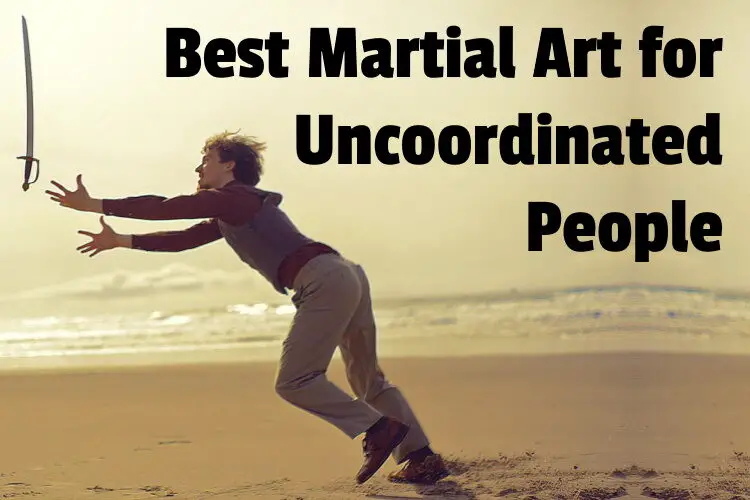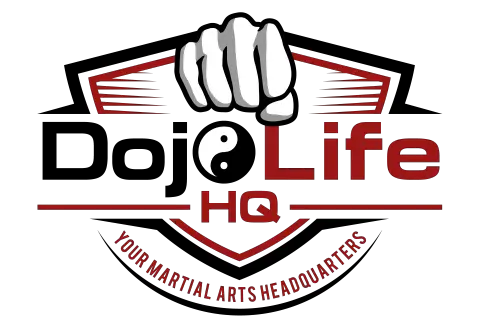
Martial arts work for all areas of physical training, from strength, balance, speed, agility, and cardio. But sometimes, young or old, we aren’t always the most coordinated. So what is the best martial art for uncoordinated people?
The best martial art for uncoordinated people is Tai Chi. Tai Chi is a low-impact martial art that focuses on improving balance, stability, range of motion, and coordination through light and easy workouts. But Tai Chi is so gentle, that it won’t hold everyone’s interest.
You don’t have to be well-coordinated to enjoy Tai Chi.
Although Tai Chi is great for uncoordinated people, there are some benefits to training a more difficult martial art like Boxing, Taekwondo, or even BJJ to improve your coordination.
So, let’s look at Tai Chi and the others and help you pick the best place to start.
Boxing and martial arts is a great way to get fit while improving balance, coordination, explosive power and your confidence!#zurich #horgen #fitness #PersonalTrainer #boxing #MartialArts pic.twitter.com/YUkhawCkkd
— Lucien Tasovac (@LucienTasovac) October 28, 2019
Can an uncoordinated person learn martial arts?
An uncoordinated person can learn martial arts; however, they may find that they have to train in beginners’ classes only. An uncoordinated person may also struggle to succeed in martial arts competitions.
Nevertheless, martial arts are an excellent way to improve coordination.
Although physical control and coordination are not a must for martial arts training, it is important that you are emotionally and mentally controlled.
You cannot be the kind of person with a short temper, a bad attitude to learning, and overall be emotional and irrational and expect to be welcomed like every other member in the dojo.
This is one of the reasons why young children (under 3 years of age) are generally not allowed to train at most dojos.
If you want to train martial arts, you can do so, but you should be able to control yourself, listen to instructions, and be a good, cooperative student and class member.
As for physical control, it is not necessary for martial arts.
Training martial arts will naturally help to improve your coordination over time. If someone has a condition like cerebral palsy or turrets, and they can’t control themselves no matter how hard they try, talk to the head coach at the gym.
Most gyms will be happy to help an individual with a disability, although you probably won’t be allowed to do sparring or competitions.
There are many martial arts organizations across the USA and the rest of the world that specialize in martial arts classes for people who struggle to control themselves.
Martial arts is not just about learning to fight.
It can help with improving co-ordination, balance, flexibility and cardiovascular fitness. It is also great for the memory!#mixedmartialarts #physiomotion #fighting #balance #flexibility #kickboxing #strength #coordination pic.twitter.com/MmcpS9y8Gp
— PhysioMotion (@physio_motion) October 11, 2019
Do martial arts help with coordination?
Training martial arts helps with coordination, as one learns how to improve the mind-muscle connection. Martial arts training consists of drilling the same technique again and again, which improves muscle memory and coordination in most adults and children.
There are lots of different martial arts, and the one you should pick depends on your current level of coordination and capabilities.
If you are very old, recovering from an injury, or if a child is looking to train a martial art, then a low-impact martial art like Tai Chi would be best.
Martial arts like Tai Chi and Aikido focus on breathing, flow, movement, and technique as opposed to brute force and skills like Boxing, BJJ, and Muay Thai.
If you are more advanced in terms of your fitness levels or have previous experience in sports and want to take your coordination to the next level, you should consider training a martial art like Boxing or Taekwondo.
I recommend training in a striking sport if you want to improve your coordination.
Striking sports are martial arts where you hit each other. There are low-impact striking martial arts like Karate and Taekwondo, and then there are high-impact striking sports like Boxing and Muay Thai.
If you are young and healthy, I recommend challenging yourself with Boxing and Muay Thai. You will learn how to coordinate your body when you are tired and stressed.
If your coordination is currently an issue for you, I recommend an easier martial art like Karate or Taekwondo. Even though these martial arts are quite low-impact, Karate and Taekwondo practitioners have insane dexterity in their arms and legs.
Well done to Sienna in 8F who received a trophy for the best high kick at her Martial Arts Club recently #buildingconfidence improving #fexibility #coordination #fitness pic.twitter.com/MSZYqvYkyU
— Devonport High School for Girls (@DHSGnews) February 16, 2022
What is the best martial art for uncoordinated kids?
The best martial art for uncoordinated kids is Tai Chi. Tai Chi helps uncoordinated kids learn how to control their breathing, balance, and mind. But for restless, higher energy children, Karate or Taekwondo may work better.
This is because Tai Chi classes are usually quite slow, and a restless child will only become more irritable from such slow training.
If that’s the case, try enrolling your child in Taekwondo or Karate.
Taekwondo and Karate are good for uncoordinated kids, as you learn all the things in Tai Chi – balance, breathing, coordination, etc., but you train at a faster pace. In Karate and Taekwondo, you also hit paddles and do light sparring, improving your balance and coordination.
I would advise against putting an uncoordinated child in Boxing, Muay Thai, MMA, or any other high-intensity, high-impact martial art. This is because these martial arts require you to be controlled to begin with. Otherwise, you could hurt yourself or your training partners.
Your child will also get hit in the head a lot in these martial arts, and this is not good for the development of their tiny brains. I would never put my kids in a sport like Boxing until they are at least in their teenage years.
If you put your child in Tai Chi, Karate, or Taekwondo and they don’t like it, you can try BJJ. BJJ is great for kids, as it is a grappling sport and is, therefore, a little bit slower in terms of pace compared to a striking sport. BJJ is good if you want your child to improve their coordination and strength.
Tai Chi is a Chinese martial art. Curious about how effective Chinese martial arts are?
Check out this recent article on my site. Kung Fu is a misunderstood term here in the west as it actually is an umbrella term for all Chinese martial arts. But in that article, I look at several of them, including a few that are truly deadly.
Just click that link to read it on my site.
Did you know karate improves coordination, quickens reflexes, and builds stamina? 🥋 #waynflete #karate pic.twitter.com/ktNIUq1Wz1
— Waynflete (@waynflete) October 23, 2021
Does Karate require coordination?
While Karate is a martial art that eventually requires good levels of coordination, it is not necessary to have good coordination to start in a Karate class.
Coordination is something that will develop with your training. The best Karate practitioners have fantastic coordination.
In Karate, you will practice lots of techniques, including punches, kicks, turns, blocks, and a whole range of different stances. This will help improve your balance and coordination massively. Karate is great for children and older people, as there is not much sparring.
Any sparring that you do in Karate is usually semi-contact, and there is a low risk of injury. If you currently train in Karate, a great way to improve your coordination is to keep on practicing your katas (forms/sequences).
They may be boring, but they help get techniques and motions into your muscle memory so that you can subconsciously pull them off in a fight.
Karate is great for people of all ages.
If you are thinking of enrolling your child in Karate training, check out this recent article on my site about whether Karate is good for young kids. I get into all the pros and cons, including the 1 con every parent should be aware of.
Just click that link to read it on my site.
Getting that balance on. #ChoesMartialArtsSchool #hapkido #taekwondo #Dedication #Commitment #Respect #SelfDefense #Confidence #Loyalty #Persistence #TeachThemYoung #MartialArts #MartialArtsFamily #TacomaWa #PuyallupWa #fitness #puyallupmartialarts #tacomamartialarts pic.twitter.com/kmOGa8lKGe
— Choe’s Martial Arts (@ChoeMartialArts) December 28, 2019
What martial art is good for balance?
Taekwondo and Muay Thai are martial arts that are good for improving balance. In Taekwondo, you will improve your balance when you practice sharp, snappy kicks, or spinning round kicks. In Muay Thai, you will improve your balance and stability when you are getting hit and clinching.
The best martial art for balance has to be a striking martial art. Balance is important in striking, but it is important in grappling too, such as when defending takedowns and throws in BJJ, Judo, Wrestling, and Sambo.
The reason I recommend Taekwondo for balance is that Taekwondo puts heavy emphasis on training kicks.
When you kick, you have to take one foot off the floor, meaning you have only one point of balance. In Taekwondo, you will learn how to kick whilst using your arms, torso, and head as a counterbalance to stop you from falling over. But Judo is also another great one, as I mentioned.
Curious about the benefits of training Judo?
Check out this recent article where I look at all of the pros and cons and specifically look at how Judo impacts both strength and coordination.
Just click that link to read it on my site.
Conclusion
To sum up, the best martial art for uncoordinated people is Tai Chi, as it is a low-impact, low-pace martial art that is great for improving your balance and breathing.
Tai Chi is also good for uncontrolled kids, but it may be better to put them in Karate or Taekwondo if Tai Chi is too boring for them.
Although you don’t have to be physically controlled, you have to be mentally and emotionally controlled to train in martial arts. There is no excuse for having emotional and irrational outbursts in a martial arts class.
Your coach and fellow classmates should be treated with respect at all times.
Training martial arts can help improve your flexibility and your coordination. If you have good coordination, try something like Boxing or Muay Thai. If you have poor coordination, or if a child wants to train in martial arts, then something less intense like Karate or Taekwondo would be better.
Image by Harmony Lawrence from Pixabay
